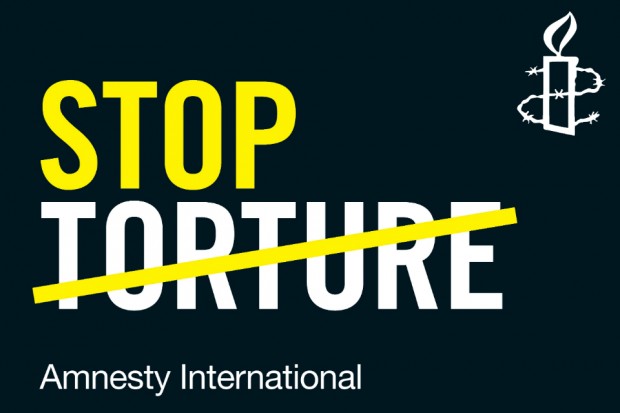 Recently, on the eve of the UN’s Day in Support of Victims of Torture, I was in Glasgow to deliver a speech covering current issues on human rights to members Amnesty International and to launch their Stop Torture campaign. It was a great opportunity to meet with many of their Scottish members on what is an important day in the Amnesty calendar.
Recently, on the eve of the UN’s Day in Support of Victims of Torture, I was in Glasgow to deliver a speech covering current issues on human rights to members Amnesty International and to launch their Stop Torture campaign. It was a great opportunity to meet with many of their Scottish members on what is an important day in the Amnesty calendar.
Amnesty is an organisation with which I have had a long and close personal association. Whether it’s through actions by members of local groups like my own one on Orkney, or lobbying governments at the highest level, they work tirelessly to champion the rights and freedoms of people at home and abroad. As we see events continue to unfold in Ukraine, Syria, Egypt and Iraq, this work as is important now as it ever has been,
Worldwide, our human rights are the most precious things we have in common. It’s a responsibility of us all to do what we can to protect and nurture our shared humanity.
One issue of the Human Rights Agenda I feel particularly strongly about is the death penalty.
The death penalty undermines human dignity whether it’s that of an individual or that of a state or a country. Over the years I have travelled around the world to campaign with Amnesty International. I have met inmates like Kenny Richey, a Scotsman on Death Row in Ohio and Troy Davis in Georgia. I also visited Japan to campaign for the release of Hakamada Iwao who is believed by Amnesty to be the longest-serving death row prisoner. It was a humbling and sobering experience to meet his family and supporters.
Wherever you go in the world you hear the same thing - local people campaigning on human rights issues take strength and inspiration from the active support of Amnesty members and supporters around the world. It also has to be said that the people in charge of the prisons and the criminal justice systems all know the power of Amnesty International.
In Troy Davis’s case he was executed in 2011. He died, still pleading innocence and urging his family and others to ‘continue to fight this fight’. I was devastated at the time of his execution and still think about him often.
Hakamada was freed this year after 48 years on death row. Although he survives his life has been ruined and he suffers enormously as a result of his experiences.
Closer to home in the UK, groups like Amnesty and Government stand side by side in our opposition of the death penalty in all circumstances and side by side on a number of human rights issues.
In recent living memory the UK has been a driving force behind many human rights advances - drafting the European Convention on Human Rights in the 1950s and helping to create of the UN Human Rights Council in 2006 are two examples. Today, with a seat at the top table in the UN, the UK is able to lead the way in shaping the human rights agenda. We have pledged to use our term on the UN human rights council to focus on upholding freedom of religion, preventing sexual violence, and promoting business and human rights. Since joining the council, we have already secured important outcomes on Sri Lanka, Syria and North Korea and strengthened the resolve of the international community to tackle violence and discrimination against women through the adoption of two important resolutions.
Crucially, our achievements have been made by working in partnership. Partnerships between the countries that make up the United Kingdom. Partnerships with countries across the world. Partnerships between Government and organisations like Amnesty
Amnesty International has achieved a great deal over the years - often with the active support of the UK Government. Together we can go on to achieve more, using our role on the international stage to raise the difficult issues, to challenge our partners around the world, and to provide support – be it in terms of economic, political or humanitarian - to help make a better future for all.
